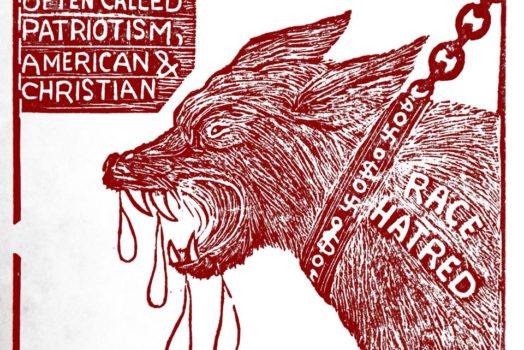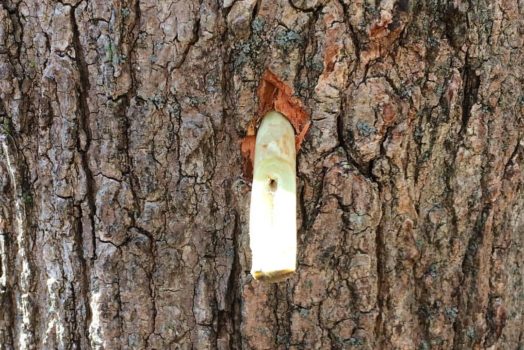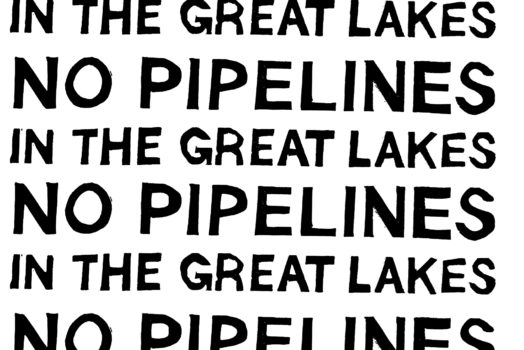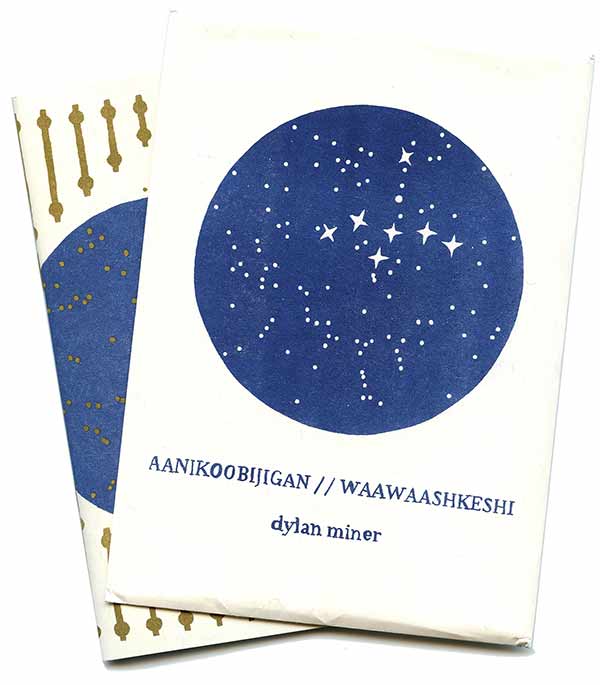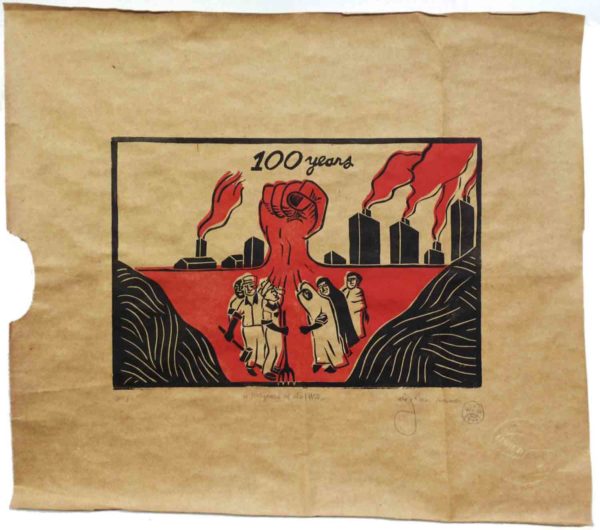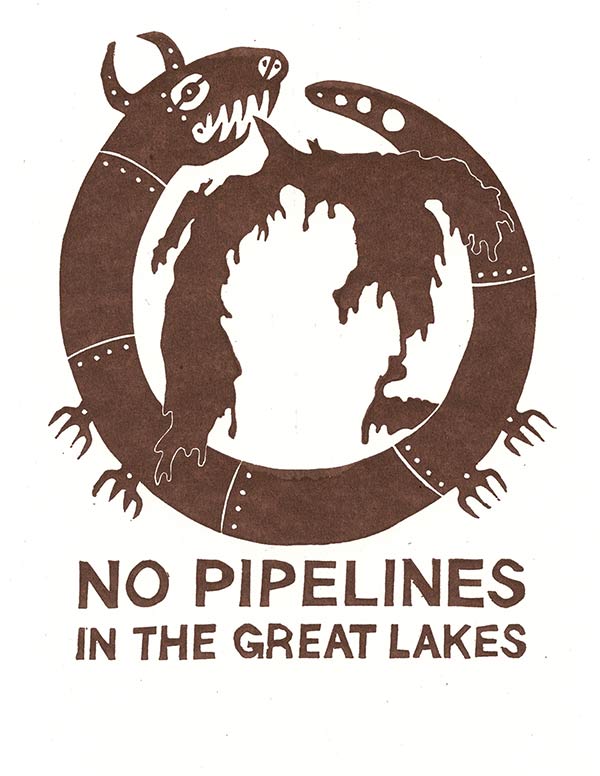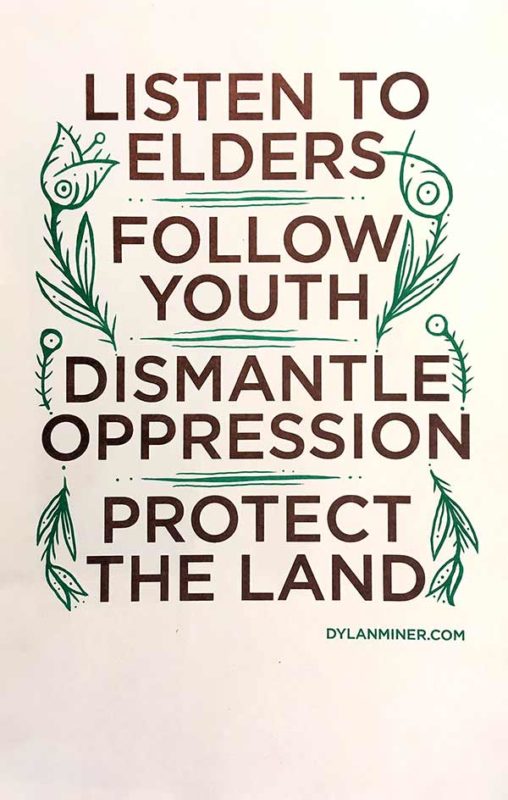
As many followers of Justseeds know, today is Indigenous Peoples’ Day. In the United States, today is a federally-recognized, national holiday known as Columbus Day. In much of Latin America, today is celebrated from a slightly different perspective and called Día de la Raza. While the latter is less problematic than celebrating the violence of Columbus and settler-colonial regimes put in place by those who came in his wake, Día de la Raza is also linked to colonial logics of de-indigenization and, particularly, the anti-Indian logic of people like José Vasconcelos, who in 1925 published La Raza Cósmica.
Although focusing on mestizaje is not the same as Anglo-American fixations on racial purity, and by extension ‘blood quantum’, la raza cósmica and its quotidian application simply as raza is intimately linked with the capitalist and settler-colonial projects to ‘de-Indian’ Indigenous people and, by extension, render their claims to sovereignty moot. If ‘we are all mestizos/as’, then ‘Indians’ cannot impede in the machinations of the state and, more recently, in global capitalism. Of course, both US and dominant Latin American perspectives share many things, even if they appear to come from distinct locations (which I think they do).
While a blog isn’t the easiest place to tease out the implications of celebrating either Columbus Day or, even Día de la Raza, I find today important because it becomes an ideal time to both celebrate our perseverance as Indigenous people and, at the same time, firmly challenge the ongoing presence of settler-colonialism and what it means to ‘decolonize’ – a buzzword that seems to be everywhere these days. What does decolonization look like and how do any of us move in that direction? Is decolonization possible or, rather, is an inherently anti-colonial perspective still needed? I am intrigued by these changing dynamics, but the presence of colonialist and capitalist expansion cannot be denied.
As I wrote in my essay ‘Radical Migrations through Anishinaabewaki: An Indigenous Re-Mapping of the Great Lakes’ (2012),
“Since 1492, when Columbus infamously sailed the ocean blue, capitalism and its parallel practice colonialism have instigated a never-ending process of global market expansion. While not denying this system’s significance, I wonder what would happen if those of us struggling against the on-going threat of capitalism chose to disavow Columbus and his centrality to our lives. What would happen if we re-mapped our society, not using colonial cartographic systems, but re-imagined our relationships to both the land and one another in a way that transcends the centrality of Columbus and his metaphorical descendants.” For me, I am interested in creating prefigurative and provisional alternatives to the hegemony of settler-colonialism. For all his faults, Otepemisiwak (Métis) martyr Louis Riel understood the power of the provisional. After all, it is the Métis Provisional Government that was seen as a powerful threat to the Canadian-state (or what would become the Canadian state).
As an artist, I like to ask ‘what would happen if,’ but I am never able to offer any responses with certainty – which I think is fine. Even so, I still wonder what would happen if we truly decolonized. What does decolonization look like and what does the process even mean?
In addition to celebrating the ways that as Otempemisiwak or Wiisaakodewininiwag people, we have resisted ongoing settler-colonial regimes, I also urge you to use today to learn more about the implications that settler-colonialism, as a structure which we have all inherited, has on Indigenous sovereignties. What does it mean to decolonize within the ongoing workings of settler-colonialism? As we push for a better and more just world, it is important to engage with the numerous Indigenous activists, artists, intellectuals, and community leaders active today, who are individually and collectively changing what it means to be Indigenous in 2014.
As part of this dialogue, I use Indigenous Peoples’ Day 2014 to offer my following essays for your reading as a humble contribution to the ongoing resistance of our communities. Each of these is free and can be downloaded from the links below:
1. Ni-aazhawa’am-minis, a Provisional Place for Crossing Over
2. Stories as Mshkiki: Reflections on the Healing and Migratory Practices of Minwaajimo
3. Tikibiing Booskikamigaag: An Indigenous History and Ecology of Flint, Michigan
4. Radical Migrations through Anishinaabewaki: An Indigenous Re-Mapping of the Great Lakes
5. ‘When they Awaken’: Indigeneity, Miscegenation, and Anti-Colonial Visuality
6. Red (Pedal) Power: Natives, Bikes, and Anti-Colonial Art
7. Halfbreed Theory: Maria Campbell’s Storytelling as Indigenous Knowledge and Une Petite Michin
8. Indigenous Aesthetics
9. Indigenous Radicalism
10. Not a free download, but you can also pick up my new book – Creating Aztlán: Chicano Art, Indigenous Sovereignty, and Lowriding Across Turtle Island – from the University of Arizona Press. If you use the code FLR, you can get 20%.
